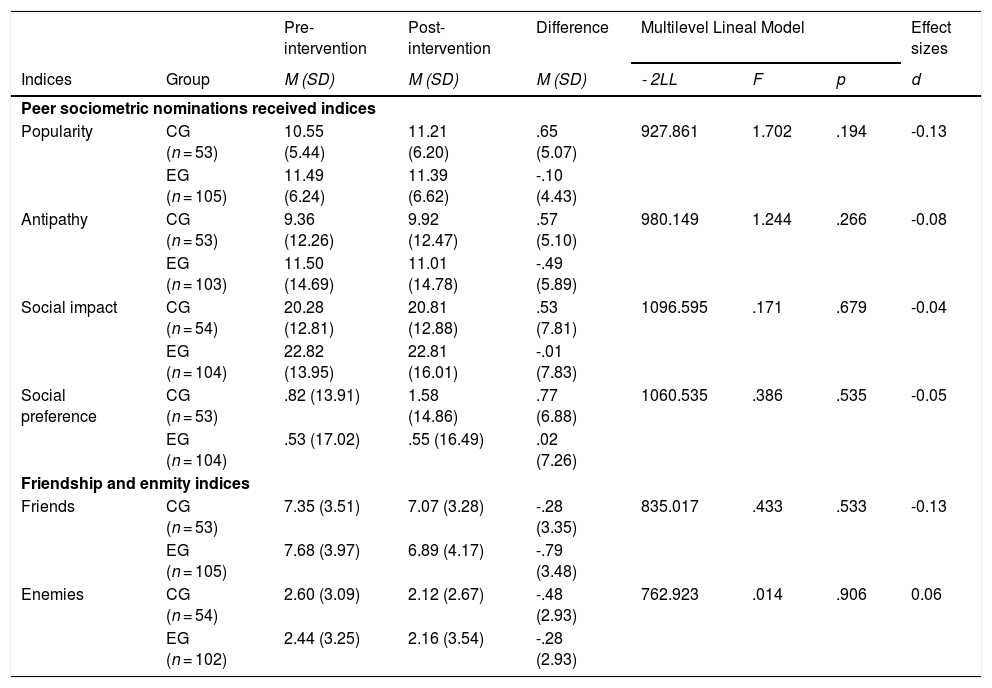The present study aimed: (a) to examine the effect of the Sport Education-based teaching unit on students’ sociometric status and quantitative relationship indices from a macro-analysis perspective (classroom-group level); and (b) to study the effect of the program on students’ relationships using a quantitative and visual analysis from a micro-analysis perspective (within the Sport Education subgroup teams level) in the Physical Education setting. One hundred and sixty-five high school students (46.7% females; Mage = 14.0 ± 1.1 years old) from six pre-established classes were cluster-randomly assigned into the experimental (n = 108) or control groups (n = 57). Both groups carried out a six-week intervention program (two Physical Education lessons a week). The experimental group followed the Sport Education model, while the control group methodology was based on direct instruction. Results of the Multilevel Linear Model showed that there were no significant differences in students’ sociometric indices nor sociometric status from a macro-analysis perspective. However, the results of the McNemar’s test and the visual analysis of social networks within-teams in the experimental group showed that the students’ relationships changed favorably within-team after the Sport Education program increased positive nominations and reduced negative nominations. In conclusion, these results suggest that the Sport Education model facilitates initiating new positive social relationships and removing negative relationships in within-team students.
Los objetivos son: (a) comprobar el efecto de una unidad didáctica de Educación Deportiva sobre el estatus social de los estudiantes y los índices cuantitativos de relación entre compañeros desde una perspectiva de macroanálisis (grupo aula); y (b) estudiar el efecto del programa en las relaciones de los estudiantes mediante un análisis cuantitativo y visual desde una perspectiva de microanálisis (subgrupos de cada equipo) en Educación Física. Ciento sesenta y cinco estudiantes de Educación Secundaria Obligatoria (46,7% mujeres; Medad = 14,0 ± 1,1 años) de seis clases han sido asignados aleatoriamente a los grupos experimental (n = 108) o control (n = 57). Ambos realizan un programa de seis semanas (dos sesiones de Educación Física semanales). El grupo experimental sigue el modelo de Educación Deportiva, mientras que la metodología del grupo control se basa en la instrucción directa. Los resultados muestran que no hay diferencias estadísticamente significativas en los índices sociométricos ni en el estatus social desde una perspectiva de macroanálisis. Sin embargo, las relaciones cambian favorablemente dentro del equipo después del programa de Educación Deportiva, aumentando las nominaciones positivas y reduciendo las negativas en el grupo experimental. En conclusión, estos resultados sugieren que el Modelo de Educación Deportiva facilita el inicio de nuevas relaciones sociales positivas y la eliminación de relaciones negativas en los estudiantes dentro de los equipos.











